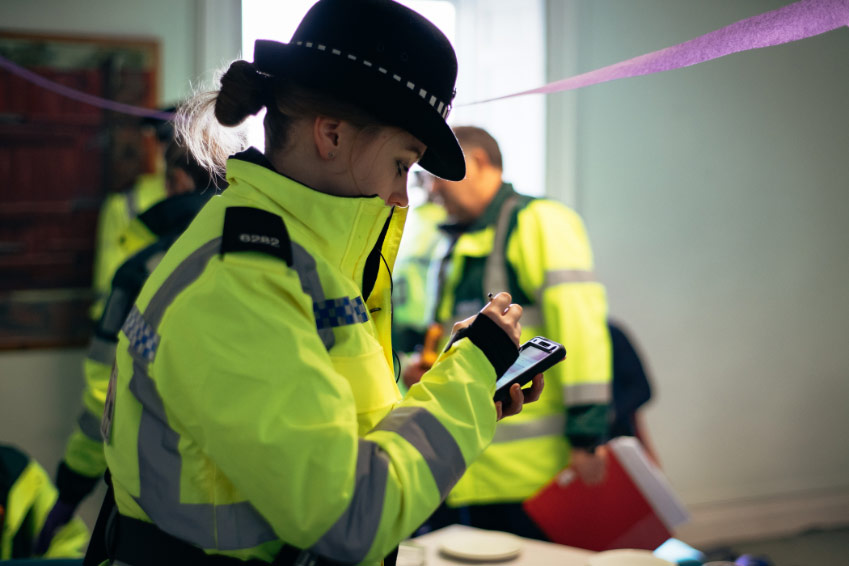BSc (Hons) - Professional Policing
In a society marked by escalating security concerns and intricate criminal challenges, individuals face the pressing need for a dedicated force to maintain law and order and address emerging threats.
Immerse yourself in a robust, industry relevant curriculum, designed and licensed by the National College of Policing. Explore the principles of obtaining intelligence, leadership and the nuances of criminal behaviour, equipping you with the essential tools to confidently embark upon a rewarding career in the forces.
Elevate your university experience by applying to volunteer in the local Special Constabulary, providing you with real-world policing experience alongside your studies, and giving you the golden ticket to our immersive Major Incident Event, where you will work alongside Paramedics and Forensic Scientists to develop your inter-professional skills.
You will benefit from the unwavering support of our expert academics, who have experienced policing and law enforcement first hand during their career. Their practical insights and real-world knowledge will enhance your learning experience, providing you with a robust foundation for your future endeavours in the field.
Course Overview
Our BSc (Hons) Professional Policing course provides a strong foundation in both the theory and practice of modern policing, alongside key supporting disciplines such as criminology, ethics, and the interpretation of legislation and procedure.
The curriculum is set by The College of Policing, ensuring your studies align with national standards and best practices. Delivered by an experienced academic team with diverse policing backgrounds, the course is enriched with insights from guest speakers across the policing and wider criminal justice sectors. As a licensed ‘pre-join’ degree, it’s the perfect starting point for those aspiring to a career in policing.
You’ll learn through a blend of engaging teaching methods, including lectures, seminars, tutorials, directed study, and independent research. Our facilities also allow for immersive practical training, with simulated crime scenes and scenario-based role plays designed to mirror the challenges and complexities of policing in the real world.
Upon successful completion of the programme, you'll be academically prepared to enter the policing profession or pursue a variety of roles in the broader criminal justice field.
On this course you will...
- Learn how to make effective, dynamic and ethical police decisions and apply problem solving solutions in a variety of operational situations.
- Learn the fundamental powers and procedures that police officers use every day.
- Have the opportunity to and be supported in applying for the local Special Constabulary, providing you with real-world policing experiences alongside your studies.
- If you are a serving Special Constable, you will have the opportunity to take part in University organised multi-agency exercises, working alongside students from disciplines such as paramedic practice and forensic science.
What our graduates say
-
![Anna Merrell]()
Recently, Cumbria Constabulary awarded me with ‘Special Constable of the Year 2019/2020.’ I feel very honoured to have been nominated and chosen to receive this award.
Anna Merrell
Over the past year and a half, I have assisted in dealing with a variety of incidents; some of which have included road traffic collisions, assaults and public order offences. Being able to apply the knowledge I learned at university to ‘real-life’ circumstances and incidents was beneficial to me.
Location
Carlisle - Fusehill Street Campus
The Fusehill Street campus has been the setting of life-saving treatments since World War I. Now, it's home to world changers, life-savers, crime fighters, and entrepreneurs with access to high-quality facilities and innovative thinking.
Find out more
Find out more about studying with us
Attend an Open Day at Cumbria
An Open Day is your opportunity to explore one of 5 campuses, meet your lecturers, and find out how the University of Cumbria could become your new home.







